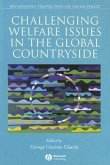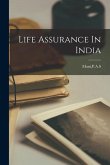'A remarkable exploration of the meanings and histories of diversity - ethnic, religious, economic and political - in Muslim societies across Asia. Refusing to reduce the complex engagements they describe to merely instrumental relations, the volume's authors describe instead the changing ways in which Muslims have understood what it is to be cosmopolitan.' Faisal Devji, University of Oxford Cosmopolitanism has emerged as a key category in Islamic Studies, defining models of Muslim mobility, pluralism and tolerance that challenge popular perceptions of religious extremism. Such celebrations and valorisations of mobility and trans-regional consciousness, however, tend to conflate border-crossing with opportunity and social diversity with ethical progress. At the same time, they generally disregard the ways in which such forms of cosmopolitanism have been entwined with structures of domination, economic control and violence. This volume addresses these issues in ways that help to contextualise contemporary issues such as the global refugee crisis in relation to longer histories of Muslim mobility and coercion. Featuring new historical and ethnographic research on China and Southeast Asia, this book explores how power and violence have shaped the experiences of Sufis and state-builders, as well as refugees and rebels, contributing to a more nuanced understanding of Islamic cosmopolitanism. Key Features . Provides historical context for understanding contemporary issues of religious identity, displacement, violence and national belonging . Two synoptic essays and seven historical case studies explain the role of coercion in shaping the worlds of mobile and cosmopolitan Muslims . Case studies include Andalusian Spain and contested visions of Islamic cosmopolitanism; Hui Muslims in Qing Dynasty and Republican China; Sufis in the early modern Indian Ocean World; Muslim rebels and rulers in colonial-era Southeast Asia; and Afghan traders in contemporary China R. Michael Feener is the Sultan of Oman Fellow at the Oxford Centre for Islamic Studies, and Islamic Centre Lecturer in the History Faculty at the University of Oxford. He is the author of Shari'a and Social Engineering: The Implementation of Islamic Law in Contemporary Aceh, Indonesia (2013) and Muslim Legal Thought in Modern Indonesia (2007). Joshua Samuel Gedacht is Visiting Assistant Professor in Islamic World History at Rowan University in New Jersey. Cover image: Detail from the Ashab Mosque in Quanzhou, China © R. Michael Feener Cover design: [EUP logo] edinburghuniversitypress.com ISBN 978-1-4744-3509-3 Barcode
Bitte wählen Sie Ihr Anliegen aus.
Rechnungen
Retourenschein anfordern
Bestellstatus
Storno





